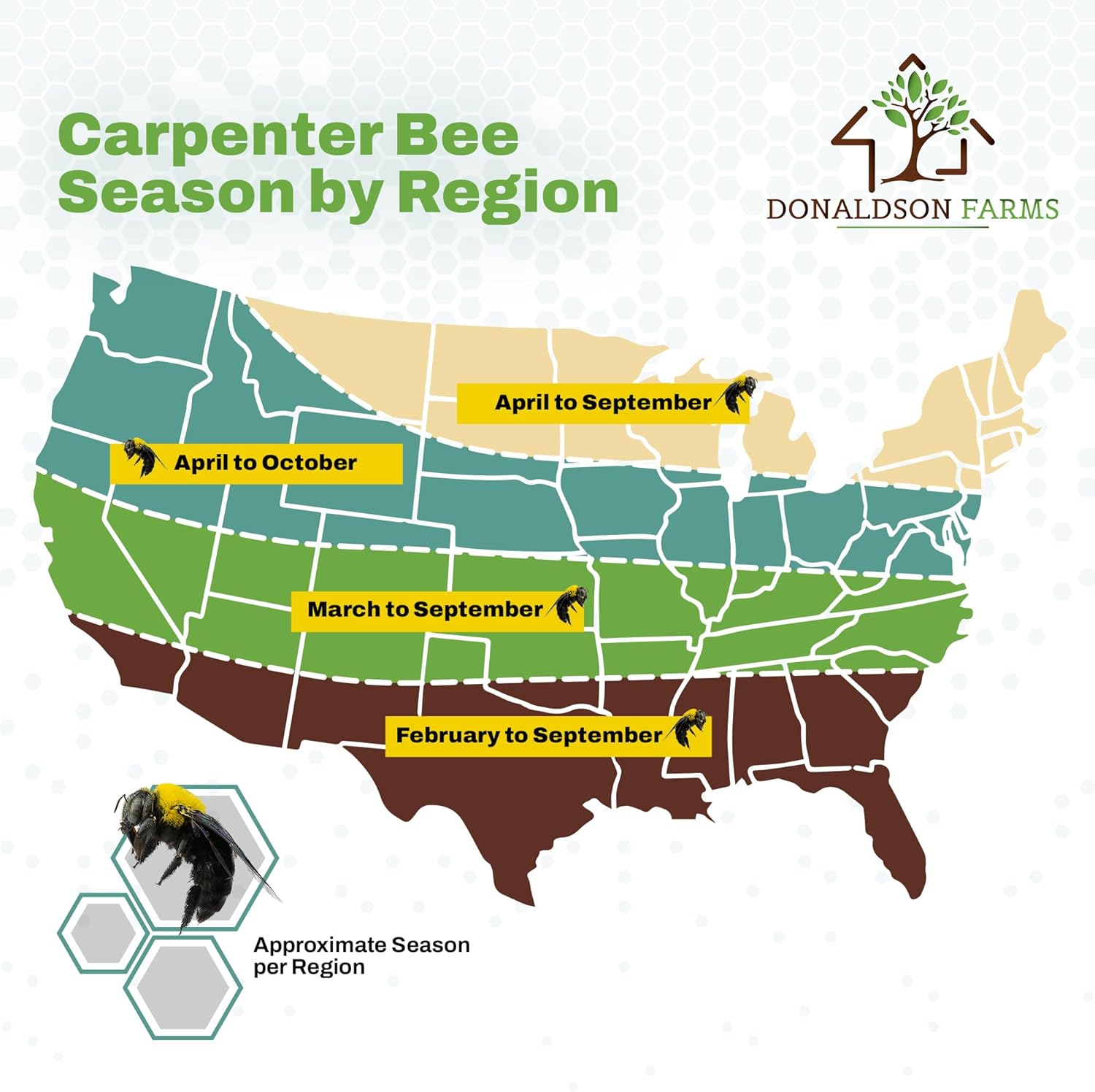
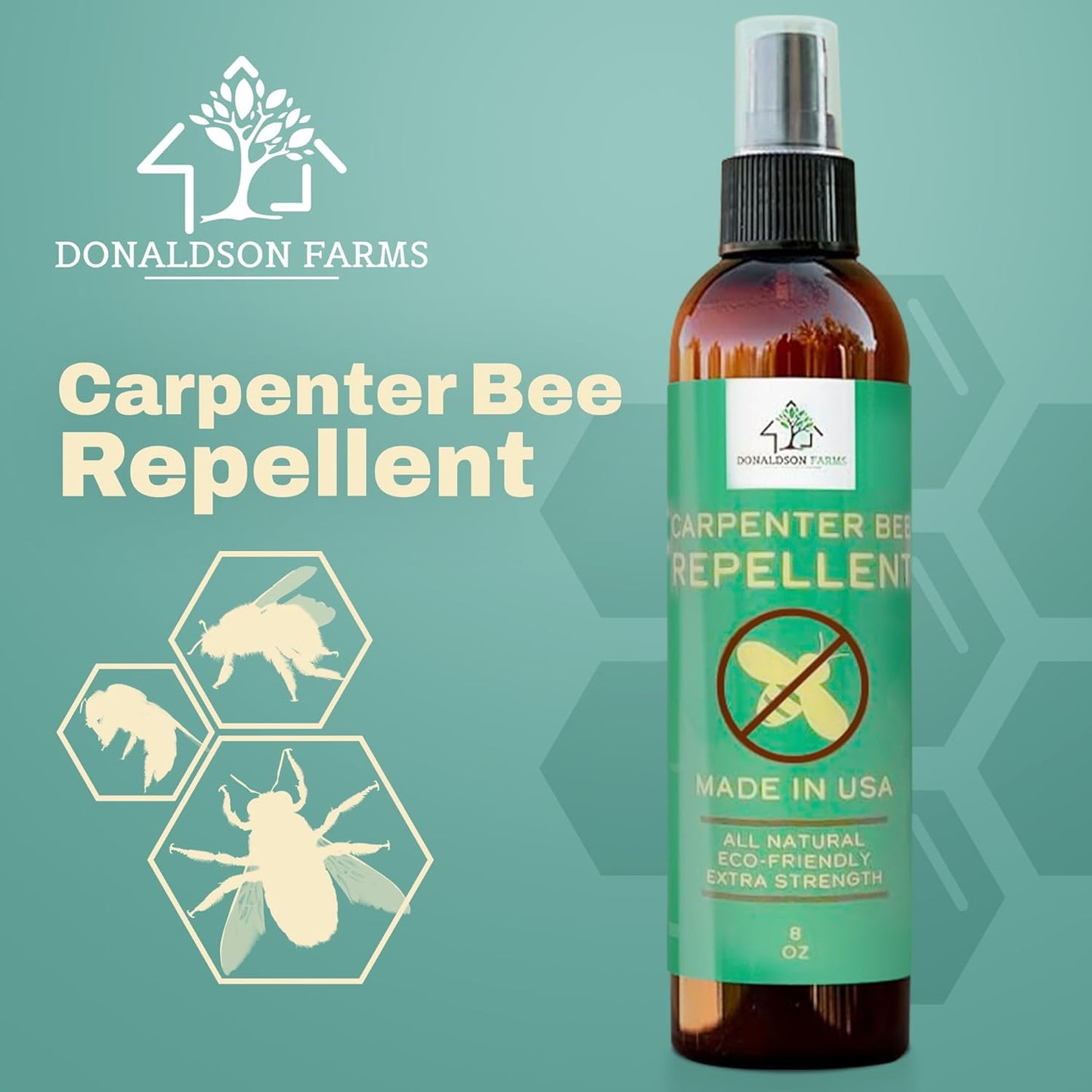
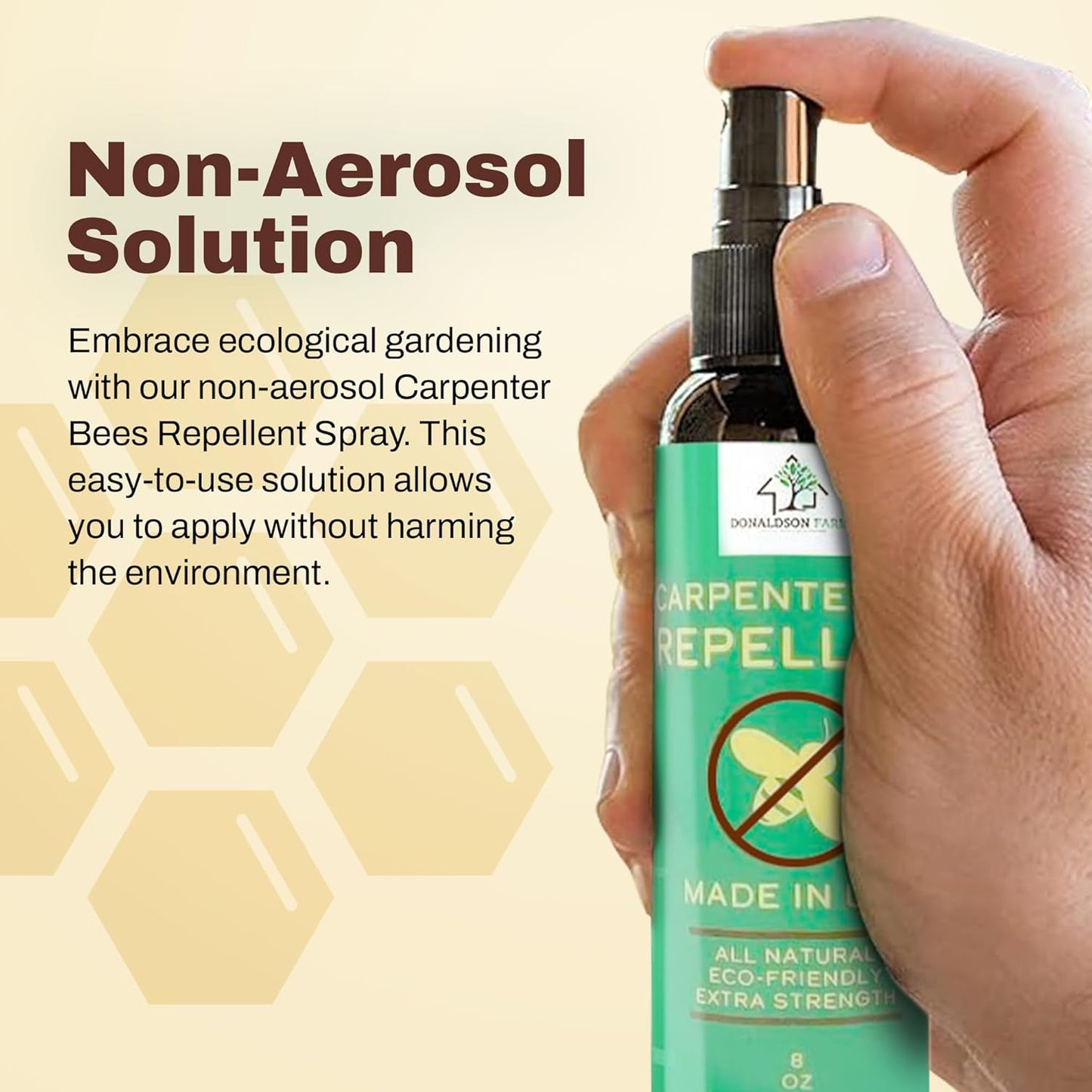

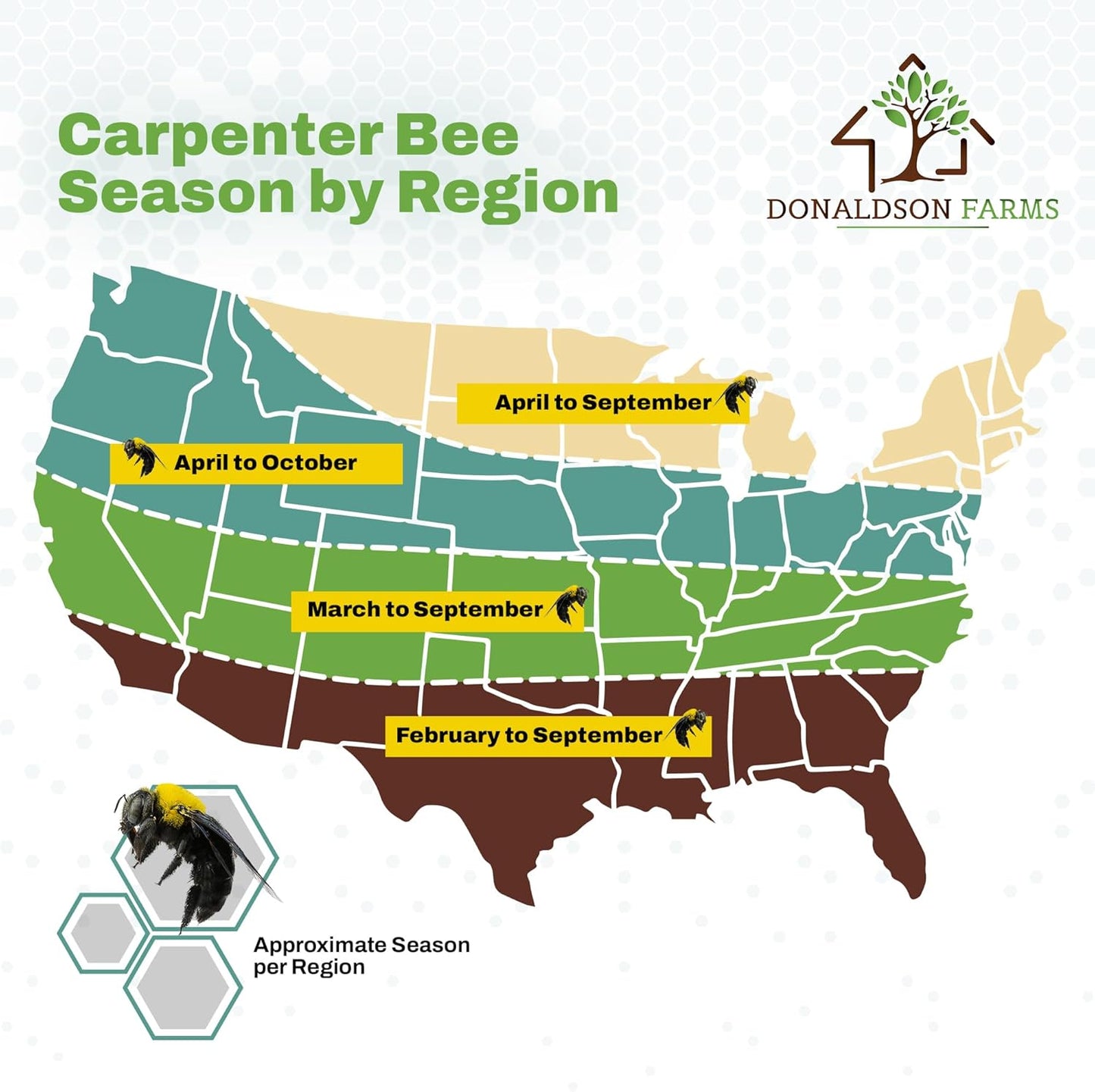


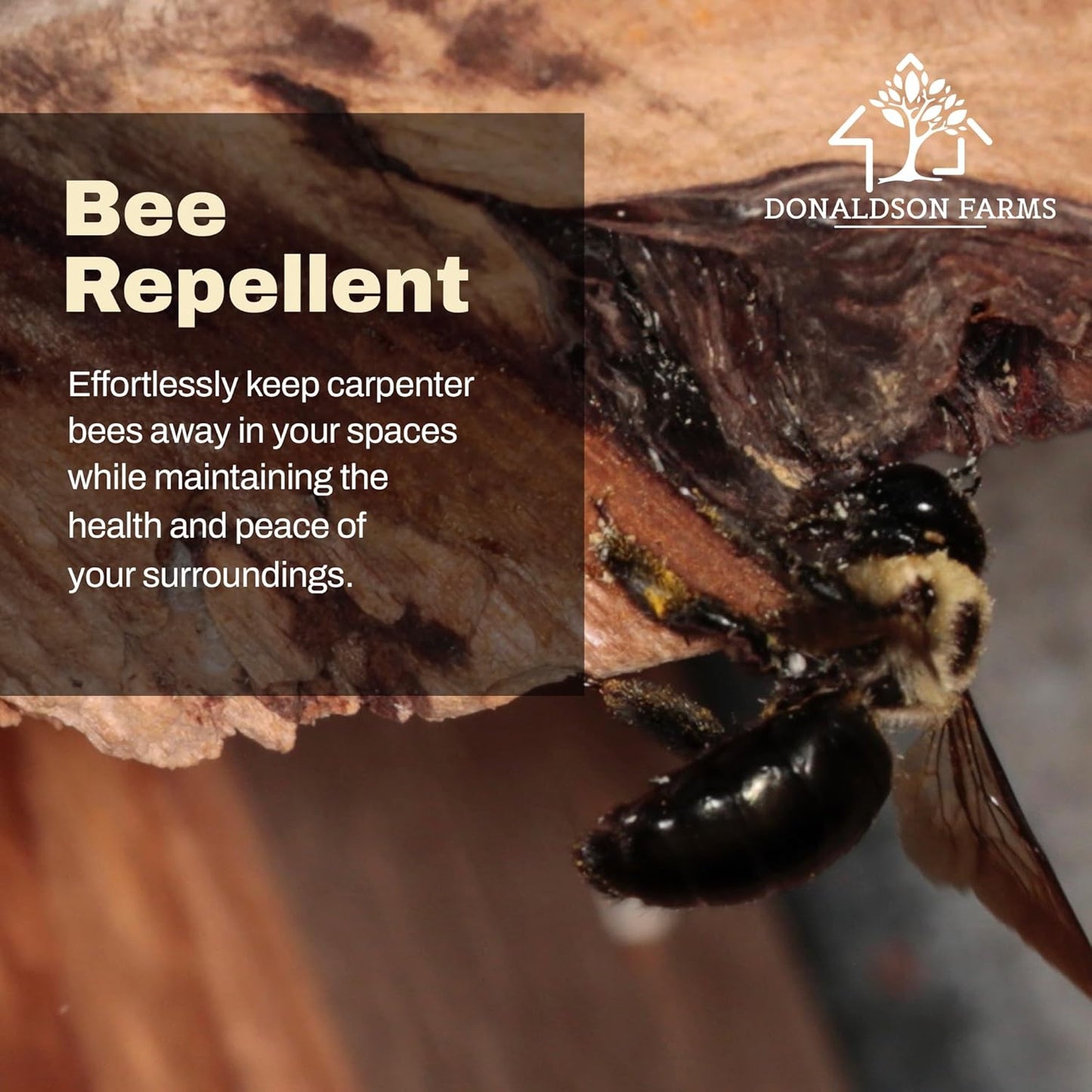
How do carpenter bee traps work?
Carpenter Bee FAQs
Why is my carpenter bee trap not working?
This is our most asked question. It comes down to location, carpenter bees can be blind to a trap in some areas of your porch/deck. That’s why if your trap hasn’t caught any bees after 1-2 weeks, it should be slightly adjusted several feet until the carpenter bees start being trapped. Carpenter bees are very picky about location.
Why are carpenter bees so bad?
Carpenter bees are bad because of the damage they do to wooden structures. Each spring they burrow into wooden porches/decks weakening the structural integrity and in a way turn it into swiss cheese.
How do I get rid of carpenter bees?
- Carpenter Bee Traps with a carpenter bee lure is the most common method. To effectively catch bees and prevent them from making new holes in your porch or deck.
- Carpenter Bee Trap Attractant to effectively raise the chances of attracting carpenter bees to your carpenter bee trap.
- Natural Carpenter Bee Killing Spray to be easily sprayed into existing carpenter bee holes to eradicate them.
- Carpenter Bee Repellent Spray to be sprayed on your porch or deck to help decrease the number of carpenter bees making holes.
- Carpenter Bee Corks specially designed to plug up existing holes made by carpenter bees to prevent them from returning.
How many carpenter bee traps do I need?
One trap for every 15 feet is recommended for best results.
Do I need bait for my carpenter bee trap?
While most carpenter bee traps can eventually work without lure, we recommend adding an attractant can speed up the process and increase the chances of catching carpenter bees. Carpenter bee lure will jump start and help the probability of success in eliminating those pesky carpenter bees.
When will my carpenter bee trap start catching bees?
Depending on several factors, it can sometimes take a couple hours and sometimes a couple weeks. If longer than 1-2 weeks, it should be slightly adjusted several feet until the carpenter bees start being trapped. Carpenter bees are very picky about location.
When should I put up my carpenter bee traps?
We recommend at the end of winter/beginning of spring when carpenter bees come out. They are most active during the spring months and still somewhat active through the summer months so it is best to leave your traps out until the end of summer.
Do I need to fill in existing carpenter bee holes?
Carpenter bees are very territorial by nature so they will be much less likely to go into traps if their existing holes are still open. It’s recommended to plug up the holes with cork or putty. We offer specially sized corks for this.
Do carpenter bees sting?
Yes they can sting, but they are very unlikely to do so compared to other types of bees.





